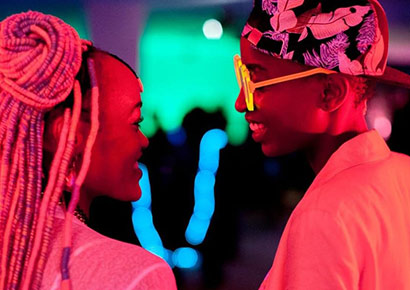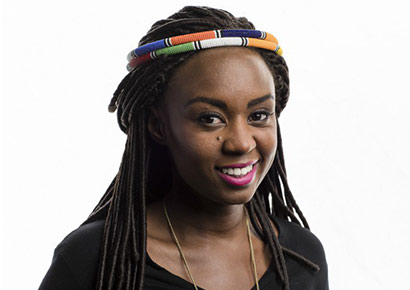Director of Kenyan lesbian love story ‘Rafiki’ fears arrest
 Wanuri Kahiu, the director of the groundbreaking Kenyan lesbian love story Rafiki, says she fears being arrested in her home country.
Wanuri Kahiu, the director of the groundbreaking Kenyan lesbian love story Rafiki, says she fears being arrested in her home country.
Rafiki (meaning ‘friend’) is based on the award-winning short story Jambula Tree by Monica Arac de Nyeko. It is a coming of age tale about two Kenyan girls who fall in love and whose desire for each other flies in the face of African conventions.
Last week, it became the first-ever Kenyan movie to show at Cannes as part of the prestigious festival’s official line up. Ahead of the screening, the Kenya Film Classification Board (KFCB) announced that Rafiki will not be allowed to be watched or distributed in the country.
The film was banned “due to its homosexual theme and clear intent to promote lesbianism in Kenya contrary to the law.” The KFCB also claimed that the producers had submitted a false script for pre-approval before it was filmed.
In an interview with The Hindu, Kahiu said she was concerned that she would be personally targeted by the powerful KFCB and its virulently homophobic CEO, Ezekial Mutua.
“It seems like they are trying to build a case to imprison me,” she said. “Most recently I saw them tweeting that I have broken the law.” While she was not surprised that Rafiki was banned, what she “didn’t expect was the threat of arrest to me.”
Prosecution is a very real possibility. In 2014, the Kenyan authorities arrested George Gachara, executive producer of the LGBT film Stories of Our Lives. He was accused of shooting the film without a licence and faced up to five years in prison. The case against him was later dropped by the state.
In the interview, Kahiu went on to reject the KFCB’s allegations about the script. “We submitted the final shooting script [to the Kenya Film Classification Board],” she insisted.

Wanuri Kahiu
The director said she would not be deterred from making films or returning to Kenya. “I am an artiste and it’s my constitutional right to make this film. I won’t stop doing my work because other people are trying to violate my right. I think it’s for them to deal with their violations,” Kahiu insisted.
“If they want they can arrest me and we can go to court to prove I haven’t broken the law. But I am going home. It’s where I live. I am not going to hide, I am not going into exile,” she added.
Rafiki was co-produced by South African company Big World Cinema and received a ‘Best Feature Film Project’ award at the 2012 Durban FilmMart while it was in development.
In its review of the movie, Variety described Rafiki as a “tender tale of first lesbian love” and called it “a lively, brightly performed film”. It does not yet have a release date in South Africa.
Homosexuality is outlawed in Kenya, with penalties including five to 14 years in prison. There is, however, a legal challenge underway in the courts to repeal these sections of the Penal Code as unconstitutional.
Leave a Reply